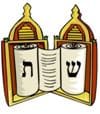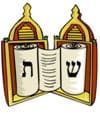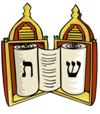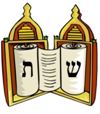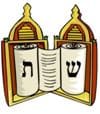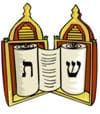
ק׳ ק׳ שׁערי תפילה

**********

Our community celebrates its
150th year anniversary
THIS YEAR!!!
We would like to celebrate this milestone as it deserves
&
in honour of all past & present members
who have continued the legacy of this Bet Hakeneset
throughout the generations.
If you are able & willing to join the
anniversary celebration planning committee
please reply to this email
or speak directly to one of the
members of the Executive Committee
תזכה למצות
Let's Make Our Moor Lane Bet Hakeneset Great!!!
#LMOMLBHG
*****

שבת מברכים
is שבת מברכים
*****

Rosh Chodesh Adar Rishon
is TWO days
Thursday Night 08 / 02 / 24 / Friday 09 / 02 / 24
&
Shabbat 10 / 02 / 24
*****

‘Aseret HaDiberot – The Ten Commandments
The minhag of
****
לוח זמני תפלה לחורף תשפ״ד
Winter Timetable 5784 – 2023/24
מוצאי שבת | ערבית | שקיעה | מנחה שבת | סוף זמן קריאת שמע | הדלקת נרות | מנחה וקבלת שבת | תאריך | שבת פרשת |
Shabbat Ends | Arbit | Sunset | Minha | Shema before | Candle Lighting | Minha & Kabbalat Shabbat | Date | Parasha |
PM | PM | PM | PM | AM | PM | PM |
|
|
5:47 | 5:44 | 4:53 | 4:15 | 10:07 | 4:37 | 4:37 | 2/3 Feb | יתרו |
קרבנות
8:45 am
הודו
9:00 am
*****

THIS WEEK 7:05 pm
*****

Hearing of the miracles that Hashem performed for Bnei Yisrael, Moshe's father-in-law Yitro arrives with Moshe's wife and sons, reuniting the family in the wilderness. Yitro is so impressed by Moshe's detailing of the Exodus from Egypt that he converts to Judaism. Seeing that the only judicial authority for the entire Jewish nation is Moshe Rabbeinu, Yitro suggests that subsidiary judges be appointed to adjudicate smaller matters, leaving Moshe free to attend to larger issues. Moshe accepts his advice.
The Jewish People arrive at Mount Sinai, where Hashem offers them the Torah. Once they accept, Hashem charges Moshe to instruct the people not to approach the mountain, and to prepare for three days. On the third day, amidst thunder and lightning, Hashem's voice emanates from the smoke-enshrouded mountain, and He speaks to the Jewish People, giving them the Ten Commandments:
- Believe in Hashem.
- Do not worship other “gods”.
- Do not use Hashem's name in vain.
- Observe Shabbat.
- Honor your parents.
- Do not murder.
- Do not commit adultery.
- Do not kidnap.
- Do not testify falsely.
- Do not covet.
After receiving the first two commandments, the Jewish People, overwhelmed by this experience of the Divine, request that Moshe relay Hashem's word to them. Hashem instructs Moshe to caution the Jewish People not to draw close to the mountain or touch any part of it.
Ohr Somayach Institutions www.ohr.edu

דם בביצה
אולם לדעת רבינו הרמב”ם, דם הנמצא בביצים אינו אסור באכילה אלא מדרבנן, משום שאף על פי שדם זה אמנם הוא תחילת ריקום האפרוח, מכל מקום מכיון שלא נגמרה יצירתו של האפרוח, אין לו דין “עוף” כלל, ואין דמו אסור מן התורה אלא מדרבנן, גזירה משום דם עוף.
לדעת מרן השלחן ערוך, אם נמצא (אפילו מעט) דם בחלמון הביצה, כל הביצה אסורה, אבל אם נמצא דם בחלבון הביצה (שהוא החלק הלבן) זורקים את הדם ושאר הביצה כולה מותרת, וזהו מנהג הספרדים שקבלו עליהם את הוראות מרן.
אולם הרמ”א כתב, שבכל מקום שיש דם בביצה, אוסרים את כל הביצה באכילה. וכן נוהגים האשכנזים.
אבל כאשר באים לבשל ביצים קשות במים, או שרוצים לשים ביצים בחמין וכדומה, אף על פי שאחרי הבישול אי אפשר לדעת אם היה בהן דם, וכן אדם הבא לגמוע ביצה כמו שהיא רכה בלא לבדקה כלל, רשאי לעשות כן, מפני שהולכים אחר הרוב, ורוב ביצים אין בהן דם.
ובאמת שבספר כנסת הגדולה כתב, שיש בני אדם המחמירים שלא לאכול ביצים אלא אם נבדקו תחילה, ואף כשרוצים לבשל ביצה, הם נוהגים לפתוח את קליפת הביצה ולהוריק מתוכה את תוכנה לתוך כלי, ואחר כך מחזירין את הביצה לתוך קליפתה וסותמין את הנקב ומבשלים או צולין אותה. ומכל מקום להלכה נראה דאין מקום לחומרא זו, שהרי כתב המהרח”ו (רבינו חיים ויטאל) שראה לרבו האר”י הקדוש, שהיה גומע ביצה כשהיא צלויה, בלי שישגיח לבדוק אם יש בתוכה דם, והביא ראיות מן התלמוד בכמה מקומות, שאין לחוש לסברת המחמירים בזה. והביא את הדברים מרן החיד”א בספרו ברכי יוסף, וסיים: “ובהגלות נגלות אמרי קדוש רבינו האר”י ז”ל, אין לחוש לחומרת בני אדם הנזכרים”.
ולסיכום: אין חיוב לבדוק ביצה, ורק אם כבר פותחים אותה, יש לבודקה, ואם יש בה דם בחלמון, יש לזרוק את הביצה, ואם בחלבון, יש להוציא את הדם, והביצה כולה מותרת. והאשכנזים אוסרים את כל הביצה גם במקרה כזה.
אמנם בהלכה הבאה נבאר איך הדין בענין זה בזמנינו.
The Laws of Blood Found in Eggs
Blood in Eggs
Blood found in eggs is forbidden for consumption, for this blood indicates the beginning of the embryotic development of the chick and this chick has the halachic status of “fowl” whose blood is forbidden for consumption by Torah law; thus, the opinion of the Rosh and Tosafot is that blood found in eggs is likewise forbidden to be eaten by Torah law.
Nevertheless, according to the Rambam, blood found in eggs is only forbidden to be eaten by virtue of a rabbinic prohibition, for although this blood indicates the beginning of the chick’s embryotic development, since the chick’s development is not yet complete, it does not retain the status of “fowl” and its blood is not forbidden by Torah law; rather, there is merely a rabbinic decree banning it due to its similarity to blood of an actual bird.
Is the Entire Egg Forbidden?
There are instances where the entire egg becomes forbidden for consumption as a result of this blood and there are other instances where the entire egg does not become forbidden and one must only remove the blood and the rest of the egg is permissible, as follows:
If one finds blood (even a drop) in the yolk of the egg, the entire egg is forbidden. However, if the blood is found in the egg-white, one may remove the blood and the rest of the egg is permissible for consumption. This applies according to Maran Ha’Shulchan Aruch.
However, according to the Rama, if blood is found in any part of the egg, the entire egg is forbidden for consumption. The Sephardic custom is to rule leniently on this matter in accordance with the ruling of Maran.
The Obligation to Check Eggs
Although blood found in eggs is forbidden for consumption, there is no obligation to check every egg before eating it since we rely on the fact that most eggs do not contain blood and according to the letter of the law, one may rely on the majority. Only if one is frying eggs in a pan or breaking open eggs for baking and the like, it is customary to check the eggs for blood (in a glass or any other clear vessel), for in this case, it is quite easy to check the eggs for blood since they are being opened anyway.
However, when one wishes to hard boil eggs in water or place eggs in a Chulent and the like, although after cooking them it will be impossible to tell if there was blood in them or not, it is indeed permissible to do so without checking them, for most eggs do not contain blood and we follow the majority. The same applies to one who wishes to swallow a whole egg, uncooked, that one need not check it first.
Nevertheless, the Kenesset Ha’Gedolah writes that there are some who are stringent not to eat eggs unless they have been checked for blood first; even if they wish to hard-boil the egg, they make a small hole in the shell, pour out the contents of the egg into a cup, and after ascertaining that the egg is clean of blood, pour the contents back into the shell, close up the hole, and then proceed to hard-boil it. However, halachically speaking, there is truly no room for this stringency, for Rabbeinu Chaim Vital writes that he has seen his mentor, the saintly Ari z”l, eating a hard-boiled egg without first checking if there was blood inside. He proceeds to bring sources from various places in the Talmud that there is no need to be concerned about the more stringent opinion on this matter. Maran Ha’Chida quotes all of this in his Birkei Yosef and concludes, “Now that the holy teachings of our rabbi, the Ari z”l, have been revealed, there is no need to be concerned with the aforementioned stringency some individuals follow.”
Summary: There is not obligation to check eggs for blood; only if one cracks them open should they be checked. If there is blood in the yolk, the entire egg should be discarded. If the blood is in the egg white, only the blood spot needs to be removed and the rest of the egg is permitted. Ashkenazim customarily prohibit the entire egg in this case as well.
In the next Halacha, we shall discuss the ramifications of this law nowadays.
